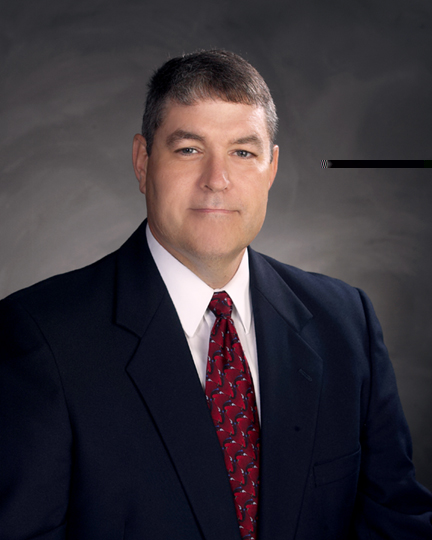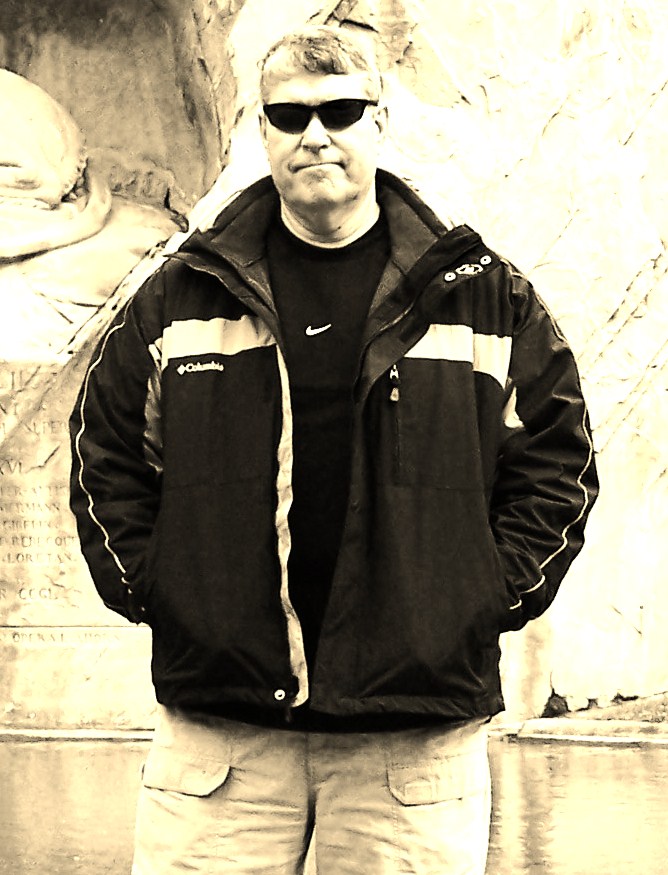Circuit Interview with Tom Taylor author of “Armored Men”
By Derrick “Bear” Collins
[two_third_last]The Circuit magazine takes a moment to speak with noted author Tom Taylor regarding his newest book “Armored Men”. Having worked on other titles such as the novel “Mortal Shield” and the excellent work “Just 2 Seconds” (with Gavin de Becker), Mr. Taylor has the distinction of being not just an accomplished writer, but also a seasoned Operator, having spent many years as part of the security detail for a US Governor.
[/two_third_last]
You have had an internationally recognized career protecting the likes of President Ford to Mikhail Gorbachev, what was the motivation behind your career as a Protector?
I saw Steve McQueen in the movie Bullitt in 1968 in which he and his team had to protect a mob witness. It planted a seed in me about doing protection work. In 1973, I began working as a road trooper in Kansas City for the Missouri Highway Patrol. Four months later, the Patrol began the first fulltime security detail for a Missouri governor, called the Executive Security Unit (ESU), with a sergeant and six troopers. At that time, most states had a fulltime detail for their governors. In 1974, ESU had their first vacancy when one of the members transferred out. They asked my training officer if he wanted the slot since he had assisted the detail several times and done a good job. He declined, but recommended me. Within two weeks — at 23 and with no protective experience or training – I was protecting the governor. It would be two years before I got any formal training, when I attended the Secret Service’s weeklong “Protective Operations Briefing” in Washington, DC. I’ve loved EP work since that first detail.
With such a successful career as a Protection Agent, where did the idea of becoming a novel writer come from?
I’ve always been an avid reader and my favorite authors are Tom Clancy, Vince Flynn, and Alex Berenson. I’ve always had an interest in writing, as well. In 1991, I wrote a series of articles about EP work for the Missouri Trooper magazine. I was commanding the division at that time, protecting my fourth governor, and wrote the series because so many officers had misconceptions about protection work. The series won the Article of the Year Award. I began toying with the idea of writing a novel in the mid-1980s. I had worked around all of the other governor’s details for years and heard many great stories. So in the late 1990s, I began writing my first novel. In Mortal Shield, many of the situations in the book were inspired by true events that happened to some protective detail.
Working as a LEO and in the private sector, which arena influenced your writing more?
I’d have to say the private sector has had more influence, but my LEO experience formed the basis of it. Private sector work is – to me – much more challenging. When I was on the government side, I had authority to arrest, carried a weapon everywhere I worked, and support was always a phone call away. I had access to government databases, great intelligence, and usually carried the best gear. On the private side – especially for agents on their own – you have much less of that. I first met Gavin de Becker in 1994 when he presented at a government conference on threat assessment at the CIA. We’ve been good friends ever since and I knew when I retired from the Patrol in 2002 that I wanted to work for his company. By going to work for a great company with an established client base, it’s been a dream job.
How much of your writing is “loosely” based on past clients?
I began writing Mortal Shield while I was still on the Patrol. As president of the National Governor’s Security Association (NGSA), I knew every NGSA detail leader in the nation personally and had been around all the governors frequently. Ninety percent of the governors in America are perfectly nice people. Then there’s the other ten percent. These are protectees – both male and female – who can be a nightmare to protect. While I’ve drawn inspiration for characters from many sources, the Governor and Mrs. Stovall characters in Mortal Shield were based largely on a governor and first lady from another state. Their abuse of protectors and antics in office were widely known in our protective circles. Those protectees will always exist. I’ve taken inspiration from events, as well. For example, I was with a high level celebrity client several years ago when we were “flashed” by some teenagers in a passing car, just like in the opening chapter of Armored Men.
How much of your writing has been based on yourself as a protector?

I think nearly all of it. I’ve been very fortunate to have been in the right place, at the right time, and was asked to handle many interesting assignments in my career. I was involved in the protection of Mikhail Gorbachev, Margaret Thatcher, and the Pope when those people participated in activities with the governor I was protecting. When I became director of the Governor’s Security Division, I had great commanders who supported my operation and enabled me to seek out the best in the business to improve our operation. So nearly everything that happens to Lt. Armstrong in my novels is based on situations I’ve either experienced or learned about from other details.
A few protectors have attempted to write books about past clients and lost credibility in the industry, how have you maintained your level of professionalism while telling stories that somewhat reflect real people and situations?
Anyone who has been doing this work for high profile clients could write about what they saw or heard in private, but that would be a clear betrayal of the client’s confidentiality. In our company, everyone signs a 50-year agreement that we will not betray that confidence for 50-years on penalty of being sued. New clients are provided with copies of their assigned agents’ agreements. Writing fiction is different and you have to be careful that an incident is so thinly veiled that everyone knows who you’re talking about. For example, in Mortal Shield, one of the rawest scenes is when the first lady throws the governor’s belongings onto the Mansion lawn. That was inspired by a similar incident that happened many years ago in another Midwestern state. The troopers involved that day would know the accuracy of my depiction, but it was also a public act that was reported in the press. Anyone outside the Mansion that day could see what was happening. I wasn’t privy to the private conversations that occurred between those involved, but I had a good idea of what was likely discussed and that’s what I wrote.
What are your thoughts about the growing amount of people who are attempting to start careers in close protection?
I think it’s great that so many young people are interested, not only in the profession, but in learning all they can to be at the top of their game. For those who are new, do your homework, find training from reputable trainers that is appropriate for the job you are pursuing. If you want to do high risk protection overseas, there’s training for that. If you want to get into corporate security in the states, look for trainers who are experts in that. Beware of instructors who have experience in one area, but purport to be experts in others. I’m a huge believer in getting a practical protective driving course under your belt, where you’re actually ramming cars and doing avoidance maneuvers, like with Tony Scotti’s Vehicle Dynamics Institute. The majority of attacks on public figures occur while they are in or around their cars. I lecture on secure transportation, but there’s nothing like actually fighting traffic to get from Point A to B. And I practice all the time. When my wife and I are going across town in separate cars, I always practice my follow-up skills with her vehicle. It makes driving fun and interesting.
I would like to know the characteristics and skills that you think an EP Agent should have or aspire to have in order to obtain some level of credibility and success in this business.
Our company constantly stresses what we call the “10 Invisible Qualities of Protectors”. These are Integrity, Ability, Readiness, Positivism, Preparation, Curiosity, Commitment, Suspicion, Willingness, and Energy. Those qualities cover every aspect of protective operators. Top agents in the company are strong in all those qualities, and everyone from the top down strives to improve each one, and recognize examples set by others. I mentioned the importance of protective driving skills in the previous answer. We’ve recently started a mentoring program where the highest level, most talented agents in the company can get even better. There’s a constant need to improve and stay at the top of your game.
Some guys are great at the advance others are great with weapons and tactics, what aspect of the protection business do you think was your strong point and gave you such a long and successful career?
I’ve worked with many others over the years who could shoot better than I could, run faster or farther than I could, and so on. I think my attitude towards protection has been one of the strongest factors. I’ve always had a passion for EP work and loved doing thorough advance work on any detail I’ve worked. I study maps before I go on any assignment and when I hit the ground — whether it’s in New York, L.A., Istanbul, or Hong Kong — I know the best hospital is over here, the U.S. embassy is over there, and so on. I’ve never believed in burning bridges and that’s paid off many times when I came across someone I had built a strong relationship with in the past and now they’re in a position to return the favor. On two occasions, I’ve escorted high profile clients up to a Secret Service checkpoint that was being commanded by an old Secret Service friend that I knew and had helped over 10 years before. That relationship helped me get my client through the checkpoint without delay while other VIPs were being more closely screened. I think also I’ve been good at thinking things through ahead of time and being prepared for any changes, so when things go sideways you’re ready to handle that situation.
Looking back on your career as a whole, both in Protection and as an Author, what are you most proud of?……….
The Rest of this interview can be found in Circuit issue #12, to get it click here….
[one_fourth]
[/one_fourth]
[one_fourth]
[add_to_cart item=”eCM-12″ showprice=”no” text=”Electronic Issue” ] [add_to_cart item=”pCM-12″ showprice=”no” text=”Printed Issue” ][/one_fourth]
[one_half_last][/one_half_last]




Leave a Reply